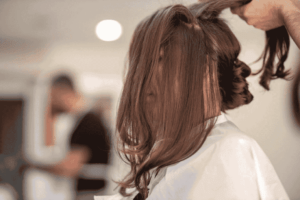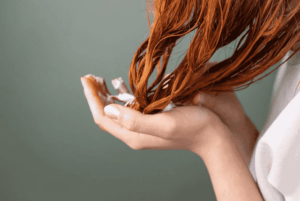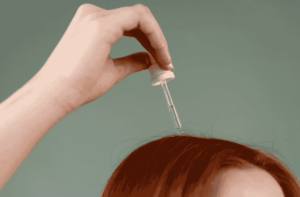Welcome Blessings!
(Tap 🔽 to see more topics!)


Do you have any hair care tips? Okay, luscious, flowing hair, we’ve all dreamed of them, haven’t we? Flipping through magazines, we see people with seemingly effortless, healthy locks, and maybe you’ve wondered, “How do they do it?” Perhaps you’ve tried many products, but yours won’t grow, or it’s constantly fighting breakage and split ends.
The good news? The hair of your dreams is achievable! It’s not about magic potions or expensive salon treatments (though I’ve been down that road myself); it’s about truly understanding their needs and giving them the love and care they crave. It isn’t just another generic list of tips. Today, you will learn science-backed, practical strategies to help you grow your hair longer, stronger, and naturally gorgeous. Think of this as your ultimate locks growth playbook!
Let’s start with the foundation: your diet. Think of your hair as a plant – it needs the proper nutrients to flourish. It is primarily made of keratin, a protein, so fueling your body with the building blocks is important. A deficiency in essential vitamins and minerals can seriously hinder growth and vitality.
Bonus Tips:
It sounds counterintuitive. Cut to make it grow? But think of it like pruning a plant. If you don’t trim dead leaves, the plant puts energy into trying to fix them instead of growing new, healthy leaves.

How Often Should You Trim? Every 10 to 12 weeks is a good rule of thumb. You don’t need a dramatic cut. Just a dusting of the ends will keep it strong.
Our hair is delicate, and using the wrong products or tools can cause unnecessary damage. The products you use can make or break its growth journey. Harsh chemicals and rough handling can cause damage and breakage, hindering your progress.
Bonus Tips:
Just like your skin, hair needs protection from the environment. Sun, wind, pollution, and even hard water can harm hair’s health.
Sometimes, nature has the best solutions. These tried-and-true remedies have been used for centuries to nourish hair and promote growth.

Experiment with these natural remedies to find what works best for your hair.
A simple scalp massage can do wonders for hair growth. It increases blood flow to the scalp, bringing vital nutrients and oxygen to the follicles. Try massaging your scalp for 5 minutes daily, using your fingertips in circular motions. Adding a few drops of rosemary or peppermint essential oil boosts the benefits.
Overwashing can strip your hair of natural oils, leading to dryness and breakage. Most people only need to wash 2-3 times a week. Pay attention to your hair’s needs and adjust the frequency accordingly. If your scalp gets oily, dry shampoo can be a lifesaver between washes.
Traditional towels can be rough on hair, causing frizz and breakage. Swap your regular towel for a microfiber towel or even a soft cotton t-shirt. These are gentler on your hair and absorb moisture without causing damage. Avoid rubbing your hair dry. Instead, gently pat it dry.
We talked about protein in your diet, but protein supplements can be helpful sometimes, especially if you’re struggling to get enough from food alone. Hair is made of protein, so ensuring you have enough building blocks. However, consulting with a doctor or registered dietitian is crucial before starting any supplement regimen.
They can assess your individual needs and recommend the right type and dosage of protein. Don’t just jump on the supplement bandwagon without professional guidance! Too much protein can have adverse health effects. Think of supplements as a potential boost, not a magic bullet.

For some individuals, particularly those experiencing hair thinning or pattern baldness, minoxidil (often sold as Rogaine) can be worthwhile. It’s a topical medication that has been shown to stimulate hair growth. However, it’s essential to talk to a dermatologist before using minoxidil. They can determine if it’s appropriate for you, explain the potential side effects, and guide you on proper usage. It’s not a one-size-fits-all solution, and results can vary. Again, professional advice is paramount.
Sometimes, hair loss or slow hair growth can be a symptom of an underlying medical condition, like thyroid issues, hormonal imbalances, or nutritional deficiencies. Consulting with your doctor is always a good idea if you’re concerned about your hair growth. They can perform tests to rule out underlying health problems and recommend appropriate treatment. Addressing any medical issues is crucial for overall health, including hair health. Think of it as tackling the root cause, not just the symptoms.
It is the most important tip of all. Healthy hair takes time and patience. There are no instant fixes or overnight miracles. It’s a journey that requires consistency and dedication. Don’t get discouraged if you don’t see results immediately. Stick to your care routine, be patient, and celebrate the small victories along the way. Think of it like growing a garden- you must nurture it consistently to see the fruits (or, in this case, the long, luscious locks) of your labor.
Ultimately, the best care routine is the one that works best for your needs. Pay attention to how your strands respond to different products and treatments. What works for one person might not work for another. Don’t be afraid to experiment and adjust your routine as needed. Your strands will tell you what they need; you have to listen. It’s a relationship, so get to know it and treat it with the love and respect it deserves.
Growing longer, healthier strands isn’t about overnight miracles but consistency, patience, and the right care. You’ll see progress over time if you nourish your hair from the inside out, treat it gently, and protect it from damage. And remember, whether your hair is short, long, curly, or straight, it’s beautiful because it’s yours. Take care of it, love it, and let it shine! If you found this guide helpful, share it with your friends or comment below with your favorite care tip. Voila! Until next time!